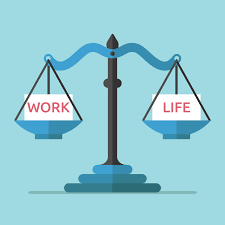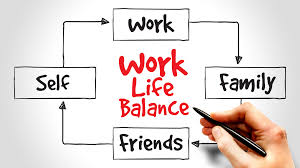.webp)

Personal Strategies for Better Balance
Define and respect your work hours—turn off notifications outside them, and resist checking emails in the evening. Many mentally resilient professionals make saying “no” a principle boundary to avoid burnout.
Rather than striving for a perfect split, integrate work and life intentionally. Be fully present when “off,” and resist the urge to let tasks bleed into personal time. Prioritise eating well, hydrating, and walking—even during the workday—especially if you work from home.
Take short, energising breaks during the day—stretch, breathe, walk, or meditate. This practice resets focus and enhances mood, creativity, and productivity.
Exercise, healthy eating, sufficient sleep and mindfulness practices aren’t optional—they’re essential to managing stress and sustaining energy over time
Use planners and to-do lists, delegate tasks, focus on high‑impact work, and avoid perfectionism. Accept that “good enough” often is good enough
Request flextime, hybrid schedules, or compressed weeks where possible. UK employees legally can request flexible working—currently about a quarter of staff work under such arrangements.
Trials in Iceland and Spain reducing weekly hours led to improved well-being without productivity loss. In Japan and UK public sectors, the 100‑80‑100 model (full pay, reduced hours) is gaining traction
“We need to do a better job of putting ourselves higher on our own ‘to‑do’ list.” — Michelle Obama
